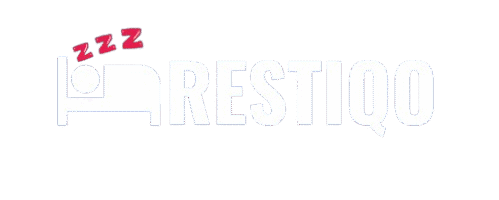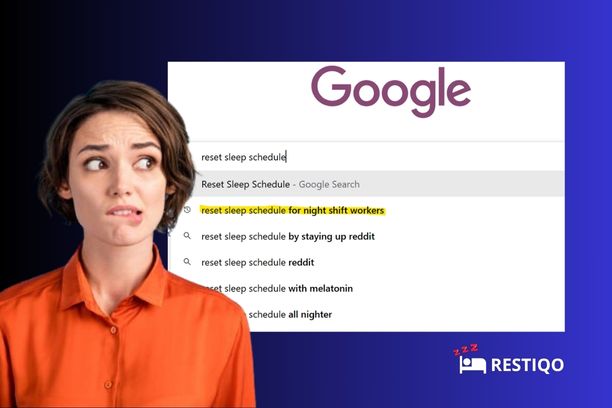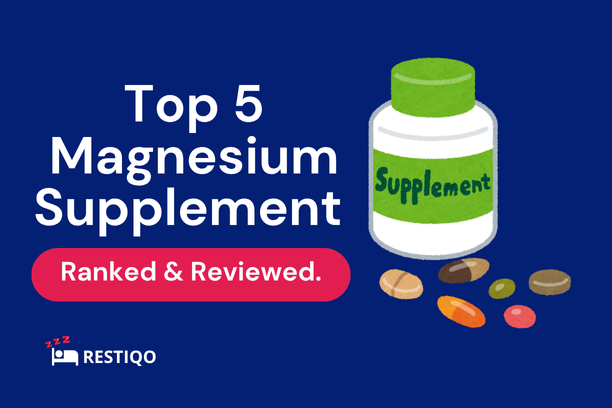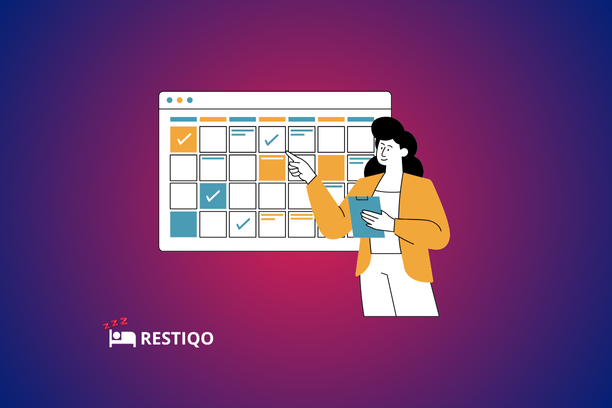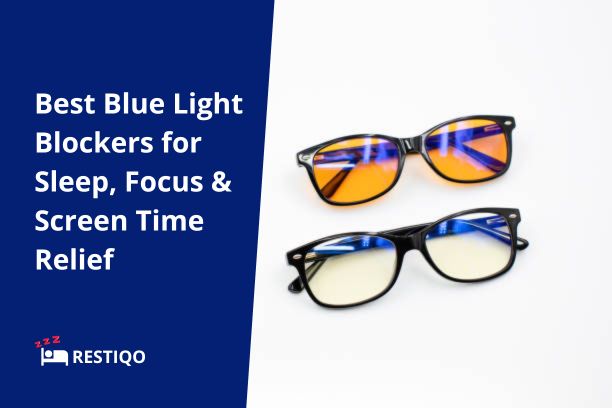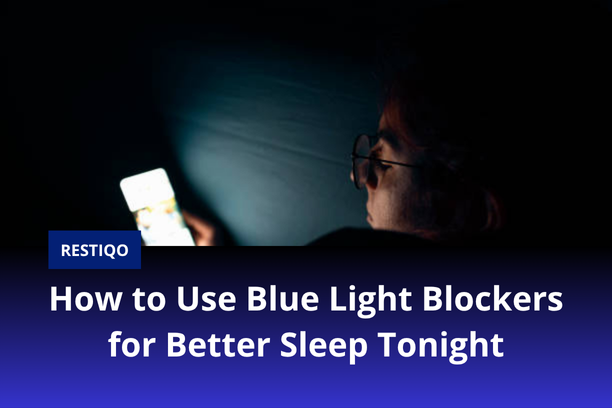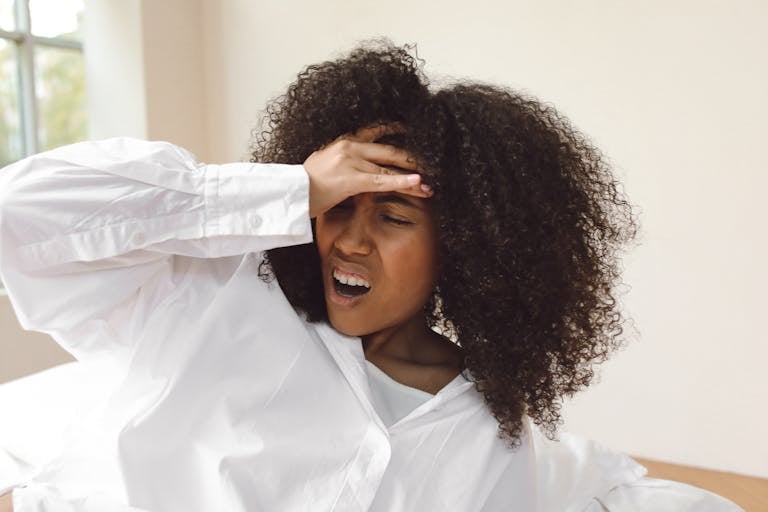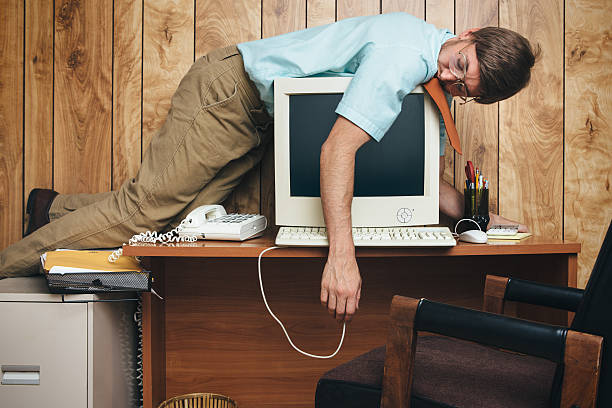
Are you a busy professional facing 3 PM crashes, foggy thinking, and caffeine fixes? You’re not alone.
This isn’t a mindset problem.
Your sleep system is failing. New neuroscience reveals how much your sleep affects your work performance.
This guide shares 7 proven sleep strategies that enhance sleep quality.
CEOs, biohackers, and top performers use these proven tips. They help double output without extra work hours.
If you want to boost your energy, focus, and resilience, this sleep and productivity guide is for you.
Why Sleep Is the Secret Productivity Weapon (2025 Data)
Quality sleep isn’t a luxury anymore. It’s the single most underrated performance tool in your arsenal.
In 2025, the data is harsh. A new study in Sleep Medicine shows that workers who sleep under six hours a night are 47% slower on thinking tasks. They compare this to their well-rested coworkers.
That’s not groggy emails or blank stares in Zoom meetings – that’s hours of lost momentum, daily.
Let’s be honest: you can buy fancy productivity apps, fill your calendar, and drink lots of coffee. But if your brain is only at 60%, you’re still running in sand.
TL;DR:
Sleep vs Productivity — The 2025 Curve
- < 6 Hours: Sharp drop in focus, memory, and decision-making
- 7–8 Hours: Peak executive function and verbal fluency
- > 9 Hours (inconsistently): Fog returns – oversleeping backfires too
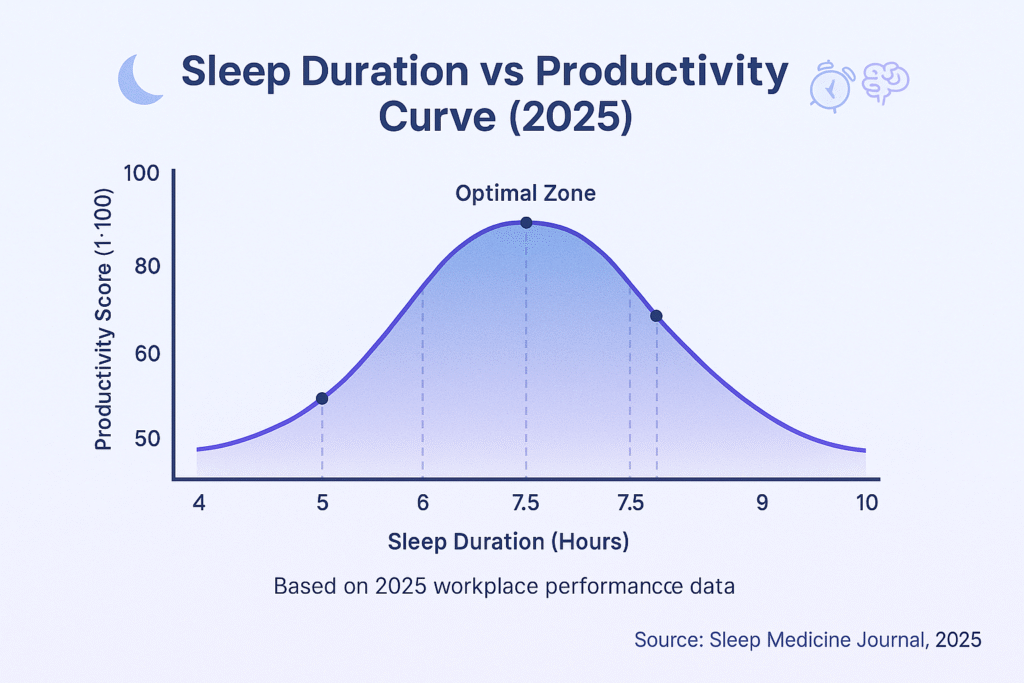
Why Lack of Sleep Wrecks Your Workflow
Let’s analyze it from a neurological perspective:
- REM sleep fuels creative problem solving and emotional regulation
- Deep sleep improves memory consolidation and muscle recovery
- Circadian rhythm disruptions jack up cortisol, delaying focus
- Low sleep quality tanks dopamine levels, killing motivation
So, if you’re wondering why your 9 AM brainstorming feels like pushing a boulder uphill – it’s not your willpower. It’s your brain chemistry fighting you.
What Poor Sleep Actually Costs Your Career
You don’t need a sleep tracker to see the damage – your to-do list tells the story. A 2025 APA report showed that professionals who sleep less than 6 hours each night have 31% more task rework. They also miss deadlines 21% more often than those who get enough rest.
What is at stake is significant.
- Missed promotions due to lagging output
- Slower response times in critical client conversations
- More repetition from forgetfulness and lost focus
Sleep isn’t a health priority – it’s an ROI lever. Each extra 90-minute sleep cycle sharpens your mind. It boosts your decision-making skills and enhances your presence in meetings.
Case Study: Decision Fatigue & Sleep Deprivation
Executives who sleep less than 6 hours make 20–30% more reactive decisions. This happens compared to when they are well-rested (APA, 2025). That means you’re more likely to:
- Snap-approve subpar work
- Ignore big-picture strategy
- Postpone engaging in tasks that need significant cognitive effort.
And it gets worse with each passing day of sleep debt.
Bottom Line: Treat Quality Sleep Like a KPI
Want to actually get more done? Stop optimizing your calendar. Start optimizing your sleep.
This sleep and productivity guide shows how to manage your sleep for better productivity. It will also show you how to dodge the traps that keep many professionals feeling “always tired.”
The 7 Science-Backed Hacks That Boost Sleep and Productivity (Neuroscientist-Approved)
Your brain is not a machine. It’s a performance engine that runs on cycles, rhythms, and recovery. To dominate your workday without burning out, use these seven sleep strategies. They are essential. They’re your new standard.
These are the habits of neuroscientists, top performers, and sleep researchers in 2025.
1. Align Sleep With Your Chronotype (Quiz: Are You a Wolf, Bear, Lion, or Dolphin?)
Quick Tip: Productivity isn’t about how much you sleep - it’s when you sleep.
Your chronotype determines your biological sleep-wake preference. Get this wrong, and you’ll feel like you’re working uphill all day.
- Lions: Wake up early, peak before noon.
- Bears: Follow the sun—sleep and rise with daylight.
- Wolves: Night owls; hit creative flow in the evening.
- Dolphins: Light sleepers, best with flexible schedules.
2025 Study (JAMA Sleep): Chronotype-aligned professionals reported 32% higher productivity than misaligned peers.
Action Step: Take a free chronotype quiz online. Create your sleep and productivity guide based on your natural rhythm, not the clock.
2. The 90-Minute Rule (Wake Between Sleep Cycles)
Hack your alarm, not your brain. Ever wake up feeling like you got hit by a truck? You likely interrupted a sleep cycle.
Each full cycle lasts ~90 minutes. Waking mid-cycle – especially during deep sleep – leads to:
- Grogginess
- Poor short-term memory
- 25% drop in verbal fluency (Sleep Medicine, 2025)
Action Step: Use a sleep calculator to plan wake-up times in 90-minute intervals. If bedtime is 10:30 PM, aim to wake at 6:00 AM or 7:30 AM – never 6:45 AM.
Tool: Sleepyti.me or mobile apps like Sleep Cycle.
3. Time Your Coffee Like a Pro
Caffeine timing is as important as sleep timing. Drinking a double espresso right after waking up might seem productive. Yet, it raises cortisol levels and can lead to a focus crash by mid-morning.
What to do instead:
- Delay caffeine intake by 90–120 minutes after waking to avoid the cortisol spike
- Use caffeine at around 10:30 AM or after lunch to achieve a clean energy boost.
- Avoid caffeine after 2 PM to preserve deep sleep and REM recovery
This small change can widen your alert window. It won’t mess with your circadian rhythm, which is key for top performance.
- High-dose melatonin. 10mg mega-doses backfire. Stick to 0.3–1mg if you use it at all.
4. Block Blue Light 2 Hours Before Bed
Blue light = melatonin killer. And melatonin is your body’s natural sleep hormone.
Staring at screens before bed (TV, phone, laptop)? You’re telling your brain it’s noon in Dubai and that screws with your:
- REM sleep
- Sleep latency (time to fall asleep)
- Morning mental sharpness
Action Step: Block blue light after 8 PM.
Use:
- Blue light glasses (amber-tinted preferred). Here’s a roundup of the best blue light blockers for sleep that actually make a difference.”
- Night Shift Mode on devices
- F.lux / Iris / Twilight apps
5. Time Caffeine Right (Stop by 2 PM)
We all love our coffee but misuse it, and it backfires.
Caffeine has a half-life of 6–8 hours. That means your 3 PM pick-me-up is still bouncing around your system at 9 PM, blocking deep sleep.
A 2025 NIH sleep study found that professionals who cut caffeine by 2 PM had 19% deeper slow-wave sleep. In contrast, those who consumed caffeine later did not experience the same benefits.
Action Step:
- Stop caffeine by 2 PM (or 8 hours before bedtime).
- Swap late-afternoon espresso for herbal tea or electrolytes.
6. Use a Wind-Down Routine (Bedtime Anchoring)
Your brain needs a ritual to detach from the workday. Otherwise, you carry work stress into REM sleep – wrecking your overnight recovery.
Action Step: Build a 30-minute wind-down routine.
Try:
- Warm shower
- Magnesium glycinate supplement
- Journaling (mental offload)
- 10-minute meditation
- Light stretching
7. Optimize Your Sleep Environment
A chaotic bedroom kills sleep. You need a sleep sanctuary.
Key upgrades:
- Blackout curtains
- White noise machine or fan
- Cool room temp (65–68°F)
- No LED clocks or device lights
Sleep Environment Study (2025): A better sleep environment caused 21% fewer nighttime wake-ups. It also resulted in 17% longer deep sleep cycles.
Action Step: Audit your room. What light, noise, or heat sources can you end today?
I promised you 7 science-backed sleep hacks but hey, who stops at 7 when you’ve got one more trick up your pajama sleeve?
8. Track Your Sleep Like You Track Productivity
You track goals, leads, and KPIs. Why not REM cycles and sleep debt?
Top-tier professionals use wearables like:
- OURA Ring
- Whoop Strap
- Apple Watch (w/ Sleep++)
These devices show:
- Sleep stages
- Recovery score
- Resting heart rate
- Respiratory rate
Action Step: Track sleep for 7 nights. Then compare work output on high-recovery vs. low-recovery days.
The Productivity-Killing Sleep Myths (Busted)
Some myths won’t die like the idea that sleep is negotiable or that you can “make it up on the weekend.” These beliefs aren’t outdated; they are undermining your performance.
Let’s light up the biggest sleep myths that busy professionals still believe. We’ll support this with the latest science from 2025.
Myth 1: “You Can Catch Up on Sleep Over the Weekend”
Busted by: JAMA Sleep, 2025 Trying to repay your sleep debt on Saturday and Sunday? Doesn’t work. Irregular sleep patterns mess with your circadian rhythm. This leads to “social jet lag.” As a result, it can hurt memory and decision-making on Monday mornings.
The Fix: Stick to a consistent bedtime and wake-up time, even on weekends. One late night sets back your productivity rhythm for 72 hours.
Myth 2: “I Only Need 5 Hours, I’m Built Different”
You might think you’re high-functioning on 5 hours… but data says otherwise.
Sleep Medicine (2025): Adults sleeping <6 hours for 5 consecutive nights showed:
- 31% slower reaction times
- 24% more errors in complex tasks
- 15% drop in working memory performance
Translation? You’re not thriving, you’re compensating.
The Fix: Treat 7–9 hours as your baseline, not a luxury. Track work output on 5 vs. 7 hours. You’ll feel the difference by Day 2.
Myth 3: “Sleep Trackers Are Overkill”
Sure, you don’t need a lab to sleep but wearables give you clarity. They show how REM, deep, and light sleep affect your energy, creativity, and stress.
The Fix: Use a tool like OURA or Whoop for 2 weeks. There’s a clear link between bad sleep and low performance. This is especially true when deep sleep drops below 20%.
Myth 4: “Naps Are a Waste of Time”
Wrong. Power naps aren’t laziness, they’re strategic resets. NASA studies show a 20-minute nap improves alertness by 34% and task performance by 16%.
The Fix: Use a 15–25 min nap during early afternoon dips (1–3 PM). Keep it short to avoid sleep inertia.
Myth 5: “I Work Better at Night” (But Burn Out by Thursday)
Staying up late can throw off your sleep-wake rhythm. You might feel energized at 11 PM, but that won’t help during the day.
The Fix: Get tested for your chronotype. Then realign your work tasks to match peak focus times. The goal isn’t to shift to 5 AM, it’s to optimize within your natural window.
The Burnout Trap: Why “Sleeping In” on Weekends Doesn’t Work
Think you can repay sleep debt on Saturday? Think again. JAMA’s 2025 sleep study found that irregular weekend sleep raises cortisol levels. This worsens fatigue on Mondays.
Here’s what works instead:
- Maintain a consistent wake-up time – even on weekends (±30 mins)
- Aim for a nightly wind-down ritual instead of weekend “catch-up naps”
- Use a sunrise alarm to adjust your circadian rhythm in a natural way.
If you’re a high performer wanting to stay sharp, keep this in mind: “consistency over compensation.”
Tools to Optimize Sleep (Without Obsessing)
Let’s be clear: you don’t need to live like a monk or turn your bedroom into a sleep lab to get better rest.
The right tools can boost your results by ten times. This is especially true for busy professionals. They often juggle deadlines, Slack messages, and family life.
This isn’t about tech obsession. It’s about using simple tools that automate rest, boost recovery, and let your brain focus during the day.
Sleep Trackers That Don’t Lie (Oura vs. Whoop vs. Apple Watch)
| Tracker | Best For | Key Metrics | Sleep Score Accuracy |
| Oura Ring | Overall sleep + recovery | REM, deep sleep, HRV, temp trends | ⭐⭐⭐⭐⭐ |
| Whoop | Fitness & recovery optimization | Strain score, sleep debt, respiratory rate | ⭐⭐⭐⭐ |
| Apple Watch | Casual tracking + ecosystem sync | Sleep stages, HR, noise levels | ⭐⭐⭐ |
💡 2025 Update: The Oura Ring Gen 4 has new AI sleep coaching. It adjusts to fit your productivity rhythm.
Pro Tip: Track for 7 days. Log work energy from 9 AM–1 PM. Cross-check with REM/deep sleep scores. Patterns emerge fast.
Game-Changing Sleep Aids (That Aren’t Addictive)
You don’t need melatonin gummies every night. These non-habit-forming upgrades support your body’s natural rhythms:
- Magnesium Glycinate: Calms nervous system, aids deep sleep.
- Ashwagandha: Reduces cortisol, helps with racing thoughts.
- Blue Light Glasses (Amber Lens): Preserve melatonin production.
- Weighted Blanket (10% of body weight): Boosts serotonin, reduces anxiety.
Essential Bedroom Upgrades for Minimalist Design
You don’t need to redesign your room; tweak the variables that affect your sleep most:
- Blackout curtains: Total darkness = more melatonin
- White noise machine / app: Drowns traffic, barking dogs, partner snoring
- Thermostat at 65–68°F: Cooler temps boost deep sleep
- No devices after 9 PM: Put the dopamine machine away (unless you like staring at ceilings)
Data Drop: The Sleep Foundation says that managing light and sound can boost sleep efficiency by 23%.
Bonus: Apps That Automate Your Sleep Ritual
- Calm or Headspace: Guided wind-down meditations
- Sleep Cycle: Wakes you during light sleep phase
- F.lux / Twilight / Night Shift: Reduces blue light after sundown
- Rise App: Tracks circadian rhythm and ideal sleep-wake windows
Use them in moderation. Tools should enable your habits, not replace them.
Final Word on Tools
Don’t go full tech nerd. Start with one wearable and one environmental change (e.g., blackout curtains + Oura ring). Use data as a compass, not a command center.
Sleep isn’t something to micromanage. It’s something to protect, like your morning routine or your work calendar.
FAQs
For quality sleep, research shows that professionals ask these 5 questions. It reveals how rest affects performance, decision-making, and focus.
Let me give you answers that are clear and backed by 2025’s best data.
How many hours of sleep do I need for peak productivity?
A study in Sleep Medicine from 2025 found that 90 minutes of deep sleep each night boosts performance on executive tasks by 26%. Researchers compare this to those who only sleep for an hour.
Use a tracker to track your deep and REM stages not total time in bed.
How can sleep improve productivity?
Quality sleep improves productivity by enhancing focus, decision-making, and task efficiency. During deep and REM sleep, your brain consolidates memories, clears mental fog, and boosts cognitive function – essential for high performance at work. According to Sleep Medicine (2025), sleep-deprived workers are up to 47% slower on cognitive tasks. Better sleep leads to better mental clarity, fewer errors, and faster execution.
What’s more important for productivity — quantity or quality of sleep?
There’s no one-size-fits-all. It depends on your chronotype, work demands, and circadian rhythm.
That said, most high performers:
- Sleep 7.5–8 hours
- Wake between 5:30 AM – 7 AM
- Work in 2–3 focus blocks synced to natural energy peaks
- Wind down tech-free by 9:30 PM
Try aligning your schedule to your chronotype (Lion, Bear, Wolf, Dolphin).
Is it bad to work late and sleep late?
Only if it fights your chronotype or creates social jet lag.
If you’re a true “Wolf” (night chronotype), late shifts can work. But if you’re forcing it, studies show:
- 17% lower deep sleep
- 22% higher cortisol
- More mental fatigue by Friday
If late work drains you, shift high-cognitive tasks to earlier windows even if you still stay up late.
Does blue light really affect sleep and productivity?
Yes, dramatically.
Blue light at night suppress melatonin levels. This delays REM sleep and leads to lighter, more fragmented sleep.
2025 meta-review shows those using blue light blockers or screen filters after 8 PM had:
- 28% more deep sleep
- Faster sleep onset
- Better AM focus scores
Use Night Shift mode, wear blue light glasses, and ditch screens at least 1 hour before bed.
What is the 10 5 3 2 1 rule for sleep?
The 10-5-3-2-1 sleep rule is a bedtime prep routine designed to optimize sleep hygiene and improve sleep efficiency:
- 10 hours before bed: No caffeine
- 5 hours before bed: No heavy meals or alcohol
- 3 hours before bed: No work
- 2 hours before bed: No screen time
- 1 hour before bed: Begin wind-down (dim lights, stretch, read)
- This method helps align your circadian rhythm and signals the brain to prepare for restorative sleep.
What is the perfect sleep time?
The ideal sleep time varies by individual, but most adults perform best with 7.5 to 8 hours of sleep per night. According to neuroscientific studies, this range optimizes REM and deep sleep, which are crucial for memory consolidation and cognitive performance. Sleep cycles typically last 90 minutes, so aiming for 5 full cycles (7.5 hours) helps you wake up during lighter stages – boosting morning energy and productivity.
How to improve sleep efficiency?
To boost sleep efficiency, focus on optimizing your bedtime routine, reducing sleep disruptions, and maintaining a consistent sleep schedule. Use blue light blockers 2 hours before bed, keep your bedroom cool and dark, and avoid stimulants like caffeine late in the day. Sleep trackers such as Oura or Whoop can help monitor your sleep stages and pinpoint areas for improvement. A sleep efficiency above 85% is considered healthy.
How many hours of sleep is best for productivity?
For peak productivity, adults should aim for 7 to 9 hours of quality sleep, with REM and deep sleep making up at least 40% of total sleep time. Less than 6 hours has been linked to memory issues, slower reaction times, and higher stress levels – directly harming workplace performance. A 2025 study published in Sleep Medicine found that even minor sleep deficits can reduce productivity by up to 30%.
Do successful people sleep 8 hours a day?
Yes, many high-performing individuals prioritize 8 hours of sleep to maintain cognitive sharpness and mental resilience. Leaders like Jeff Bezos and Arianna Huffington openly credit sleep as a key to their productivity and decision-making clarity. Contrary to hustle-culture myths, sleep is a strategic advantage, not a weakness – and skipping it often leads to burnout, not success.
Your Sleep-Driven Edge Starts Tonight
Here’s the blunt truth most high achievers don’t want to hear: You can’t out-hustle a tired brain.
In 2025, productivity goes beyond willpower or better to-do lists. It focuses on recovery intelligence.
This guide shares science-backed tips that top performers use. It covers syncing with your chronotype and treating sleep trackers like profit trackers.
Let’s recap what you’re walking away with:
- 7 research-backed tactics to improve both sleep quality and daily output
- Tools that work without turning your life into a biohacking experiment
- Myth-busting clarity that kills old-school sleep lies for good
- FAQ answers you can act on tonight
If you’re ready to take it a step further…
Check out the best sleep trackers to find one that suits your life: → Sleep Tracker Showdown: Oura vs. Whoop vs. Apple Watch.
Or
Get the 5-Minutes Pre-Sleep Reset to flip your brain from hyperdrive to sleep mode in five minutes flat.
You’ll work sharper, think clearer, and have the stamina to actually finish what you start.
![The 5-Minutes Pre-Sleep Reset [Restiqo.com]](https://www.restiqo.com/wp-content/uploads/2025/06/1750368078-removebg-preview.png)
Your Brain is Still in Work Mode. No Wonder You Can’t Sleep.
The 5-Minute Pre-Sleep Reset is your science-backed night routine for quieting a racing mind without journaling marathons or herbal teas.
